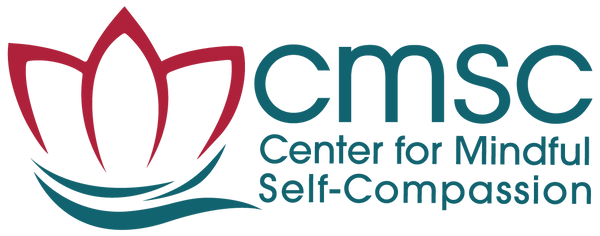Quick Six: Practices or reminders to pay attention to what it is you really need Lisa Baylis, Certified MSC Teacher and CMSC Director of Education talks about reminders of what you could offer yourself to help you feel better in a moment of struggle.
In this transformative session, we explore the vital concepts of self-love and self-
The other day, I had a friend send me a message. He said, “coming back to work after the weekend is tough. I feel like I’m in a constant sprint in my workplace. What is something I can do to help myself not burnout so quickly?"
And I thought, wow. What an amazing, open and vulnerable question. I bet others have this same thought. It is hard to go from being on a weekend or holiday, to being full back into the fullness of our lives and present with our colleagues, clients, and staff.
What I know from personal experience is that showing up in my work life is a slow and steady marathon, not a sprint, even if it feels like it sometimes. Too often, caregivers, especially teachers, health care workers, social workers and parents are collapsing across the finish line at the end of a week exhausted, burnt out and verging on sickness. This is not the race we should be running.
So what would it be like to give ourselves permission to SLOW DOWN and not rush through every moment, meeting and appointment throughout our days?
Often self-care gets a bad rap because it is something we do off the job. We can’t stop in the middle of a hard work day and say “whoa this all too much, I need to practice self-care, and walk out and go get a massage.” - can you imagine??
However, self-care done during a moment of stress or struggle in an intentional way to alleviate this moment of difficulty is behavioral self-compassion.
When you practice this kind of self-care, it serves as a kind reminder to your body and heart that you love it enough to treat it well. Self-compassion should not be about increasing productivity, but more about slowing down and checking in with what you really need. It’s that loving reminder that YOU too are important enough to care for in this moment of struggle.
Research shows the more we prioritize moments of care for ourselves, it helps us to be present and regulated for the people around us. So the next time you’re feeling this sprint and become overwhelmed in your day, I invite you to consider what are the practices or reminders that you need to give yourself permission to pay attention to what it is you really need. I do this practice and call it my QUICK SIX.
When you ask yourself, “What do I need right now?” form a loving place, one of these might just help you.
QUICK SIX:
Which of the self-care practices will you prioritize as a loving way to care for yourself? You do not need to do all of them at the same time. This quick six is simply a reminder of what you could offer yourself to help you feel better at this time.
- Drink water: It’s a quick and easy routine to add to your day that will have instant effects on your body and energy.
- Breathe: Take a long deep breath that fills you and nourishes you, then inhale and release you on the exhale. Do this often throughout your day. Big, juicy, belly breaths.
- Get outside and breathe fresh air. Just the act of noticing nature and being aware of the environment will create a grounding awareness that reminds you to be well.
- Move your body. and bonus points if you can do it with number 3. Get outside for a walk, do some stretching or yoga, or (my favorite) have a dance party with your feel good tunes - it makes everything feel better.
-
Be still. I think this is the opposite of what I just said, but to offset the constant movement and doing in our life, make space to pause. Take your lunch break, pause at the water cooler, meditate for two minutes. Just pause. Just long enough to notice your whole being settled and arrive.
- Invite gratitude into your day: Notice all the things going well in your life. As Jon Kabat-Zinn says, “As long as you are breathing, there is more going right with you than wrong with you.” Pay attention to what might be going well.
ABOUT LISA BAYLIS:
Lisa Baylis has been sharing well-being strategies for the last 20 years. A natural-born connector with an innate ability to make people feel valued and heard, she is a teacher, a counsellor, a speaker, and a mother. Lisa is a published author of Self-Compassion for Educators as well as, the creator of the AWE Method — Awakening the Wellbeing for Educators — which merges self-care, mindfulness, and self-compassion.
Lisa has a master’s degree in Counselling Psychology and a bachelor’s degree in Physical Education. She has taught internationally and locally. Much of her vast teaching experience was gained in classrooms across British Columbia as a school counsellor. Currently, she is the Education Director for the Center for Mindful Self-Compassion, the non-profit organization created by Drs. Kristin Neff and Chris Germer to spread self-compassion around the world.





